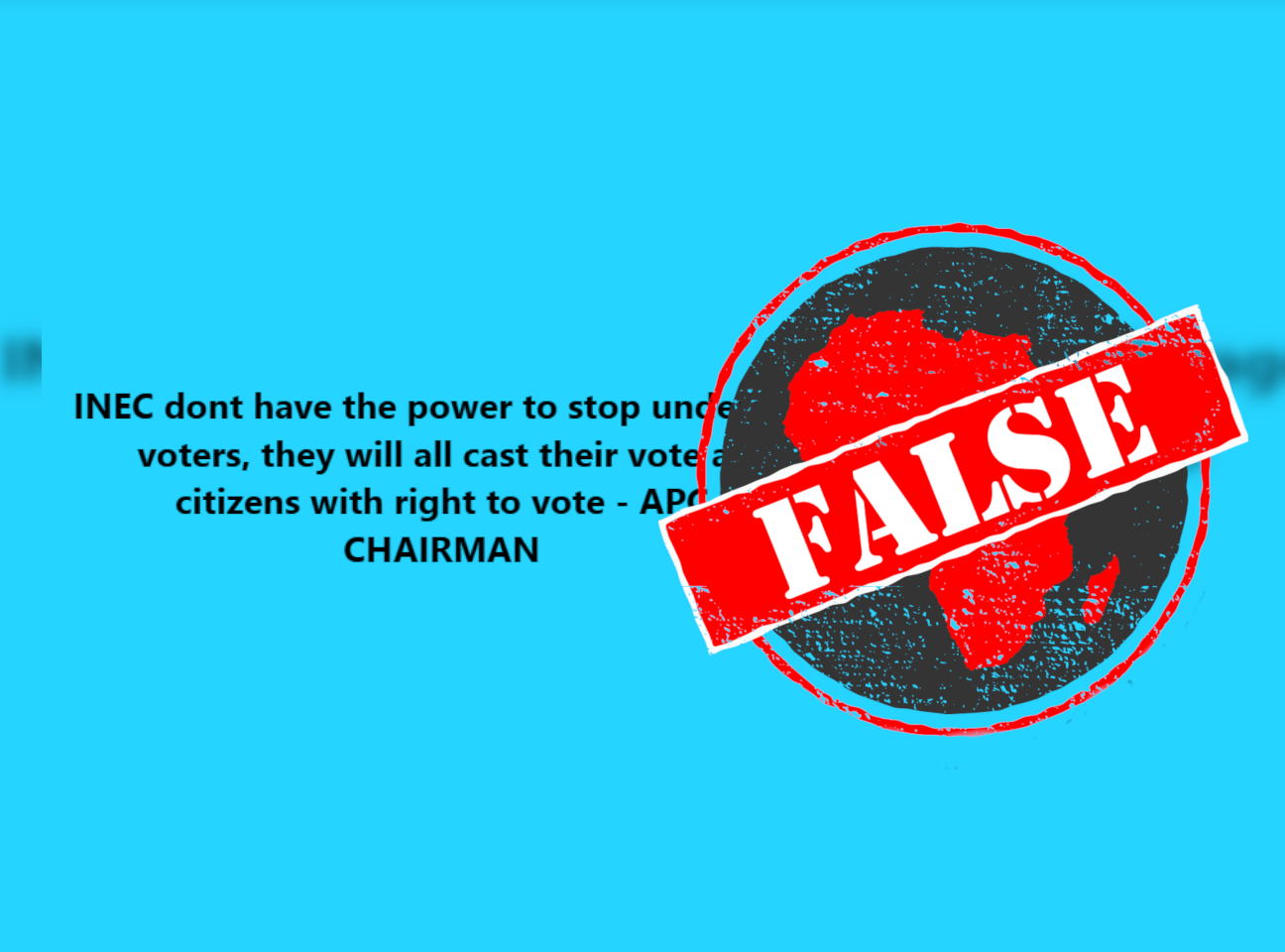IN SHORT: There is zero evidence that Abdullahi Adamu, chair of the All Progressives Congress, said Nigeria’s elections body didn’t “have the power” to stop people under 18 from voting, or suggest that they were “citizens with the right to vote”.
A top politician has said Nigeria’s electoral commission “doesn’t have the power” to stop people under 18 from voting in the country’s upcoming elections.
That’s according to a quote circulating on Facebook since early January 2023.
“INEC doesn’t have the power to stop underage voters, they will all cast their vote as citizens with the right to vote,” it reads.
The quote is attributed to “APC chairman”. That would be Abdullahi Adamu, the national chair of the All Progressives Congress.
Nigerians are set to vote for a new president, as well as for state governors and state and national assemblies, in February and March.
According to Inec, the Independent National Electoral Commission, citizens who are under the legal voting age of 18 will not be allowed to register to vote or cast ballots.
But did Adamu really say this? We checked.

No news reports of provocative statement
The quote doesn’t give any indication of when or where Adamu made the comment.
And there have been no mainstream media reports of him saying anything related to “underage voters”. If Adamu had made this provocative statement it would have been reported by credible news organisations.
The quote is false.
According to Inec’s regulations and guidelines for the conduct of elections, there are penalties for any underage or non-Nigerian person, or someone who has taken another’s identity, presenting themselves to vote. Not only will they not be allowed to vote, but they could be arrested and prosecuted.
Republish our content for free
For publishers: what to do if your post is rated false
A fact-checker has rated your Facebook or Instagram post as “false”, “altered”, “partly false” or “missing context”. This could have serious consequences. What do you do?
Click on our guide for the steps you should follow.
Publishers guideAfrica Check teams up with Facebook
Africa Check is a partner in Meta's third-party fact-checking programme to help stop the spread of false information on social media.
The content we rate as “false” will be downgraded on Facebook and Instagram. This means fewer people will see it.
You can also help identify false information on Facebook. This guide explains how.



Add new comment